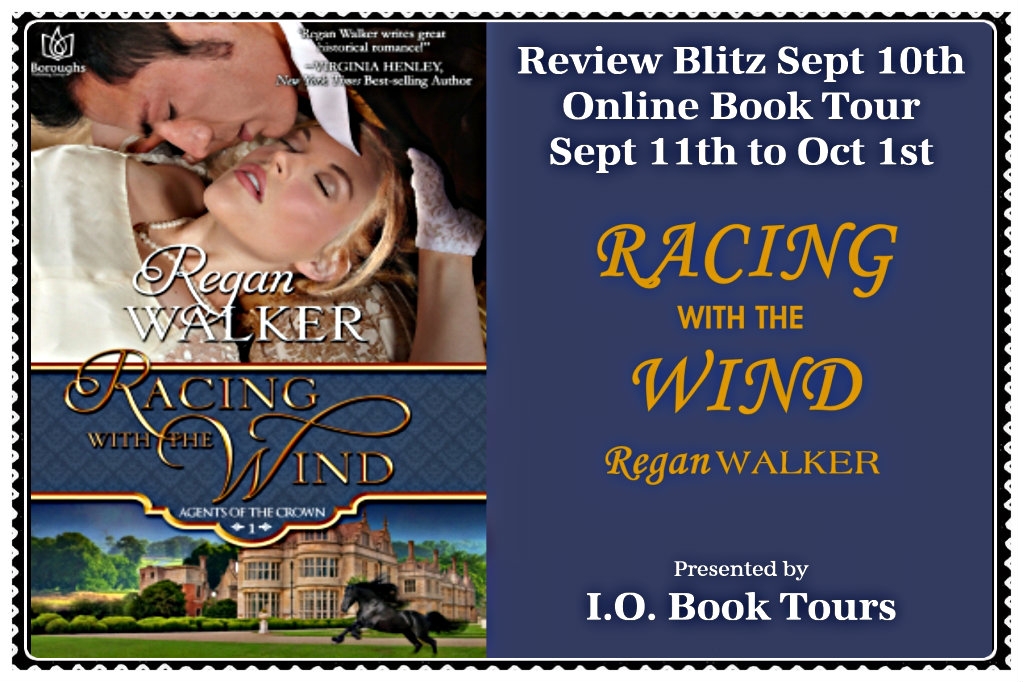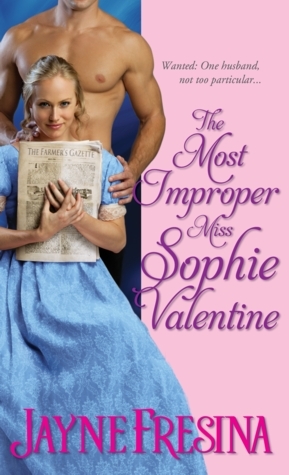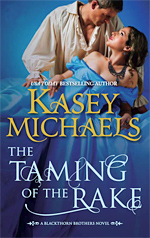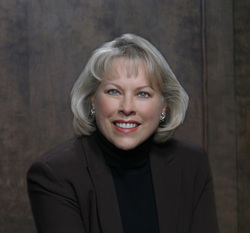 I’m very pleased to welcome Regan Walker to Reading Reality today. She’s here to talk about her debut novel, Racing With the Wind. It’s a peek into a fascinating historical period, the time after the Napoleonic Wars, and a look into the deadly spy game through the eyes of a very unusual couple. I’m glad it’s the start of a trilogy (take a look at my review for the full scoop).
I’m very pleased to welcome Regan Walker to Reading Reality today. She’s here to talk about her debut novel, Racing With the Wind. It’s a peek into a fascinating historical period, the time after the Napoleonic Wars, and a look into the deadly spy game through the eyes of a very unusual couple. I’m glad it’s the start of a trilogy (take a look at my review for the full scoop).
Let’s hear from Regan about her journey from lawyer to author.
Marlene: Regan, can you please tell us a bit about yourself?
Regan: Sure. I live in San Diego, which I fondly refer to as “Paradise.” I have one son who is now out of the nest and has left me his Golden Retriever who is my constant companion. (Love the one who feeds you, right?) Though I have lived other places, I am really a creature of the West. As far as Romance writing goes, I am a new author and I love the creative side of it. Research for me is fun, diving into the past a joy. So much of my writing in the past was associated with my career in law this is a welcome change. I have traveled extensively, both for pleasure and business and I like to give my readers a sense of another place in my stories. I want them to experience adventure, too, as well as a love story.
Marlene: Why historical romance? And what attracted you to this period in particular. Why choose the period after the Napoleonic Wars are over and not during the war, for example?
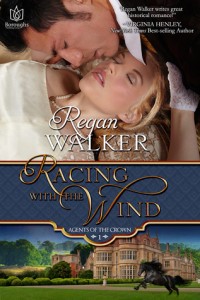 Regan: Well, when I discovered Romance novels, rather late, I must say, the ones I loved most were historical novels. I think it’s because they actually taught me something. I like the deep ones that actually have history in them, not some vague historical setting. When I decided to write one, I knew I wanted to write Regency. The Napoleonic Wars are, for the most part, before that time. However, I have a prequel in mind for the Agents of the Crown trilogy that will take place in 1784, so I guess I’ll get to that time period eventually. The reason I chose the year 1816 for this first novel is that it was an interesting time in Paris. King Louis XVII had returned to the French throne but the allied troops still occupied the country and there was fear of yet another tumultuous time in France. The streets of Paris saw violence in some quarters and that made for a likely setting for some of my scenes. It was just the place a young English bluestocking could get into trouble. Besides, who doesn’t love a trip to Paris? Some of my readers have commented that they loved being there during the 19th century through my book.
Regan: Well, when I discovered Romance novels, rather late, I must say, the ones I loved most were historical novels. I think it’s because they actually taught me something. I like the deep ones that actually have history in them, not some vague historical setting. When I decided to write one, I knew I wanted to write Regency. The Napoleonic Wars are, for the most part, before that time. However, I have a prequel in mind for the Agents of the Crown trilogy that will take place in 1784, so I guess I’ll get to that time period eventually. The reason I chose the year 1816 for this first novel is that it was an interesting time in Paris. King Louis XVII had returned to the French throne but the allied troops still occupied the country and there was fear of yet another tumultuous time in France. The streets of Paris saw violence in some quarters and that made for a likely setting for some of my scenes. It was just the place a young English bluestocking could get into trouble. Besides, who doesn’t love a trip to Paris? Some of my readers have commented that they loved being there during the 19th century through my book.
Marlene: Would you like to share with us a little about what kinds of research you had to do for the book?
Regan: As Virginia Henley once told me, “Research is my passion.” It’s mine, too. For this novel I dove into all things Napoleon. While he isn’t a character, he is talked about by the characters throughout the book. His imprint on Paris at the time is discussed and in some cases, lamented. For the Prologue and other scenes, I had to know something about Napoleon’s defeat in Russia in 1812. For many scenes, I had to understand what buildings of state were open in 1816. Two of my scenes are set in Notre Dame, though I had at first wanted them in the Sainte-Chapelle church in Paris, as it’s one of my favorites. However, my research disclosed it was closed in 1816 for renovation. For one dining scene, I communicated with the famous restaurant La Tour d’Argent to ascertain if they were serving their current specialty, duck, in 1816. They weren’t, so I had to change the menu. I also had to understand what books my bluestocking heroine might read in 1816. And, of course, some of my characters are real, historic figures. Germaine de Stael is one of those and I had to learn much about her to make the character seem genuine. In the end, my novel is better for those kind of details.
Marlene: Some readers might think that Lady Mary is a bit ahead of her time. Did you have a model for her character?
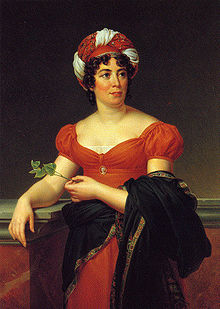 Regan: I draw upon many people I’ve known for my characters, but I believe that there have always been women like Lady Mary. As my Author’s Note at the end of the book indicates, we know that even during the Regency, there were women who rode their horse astride, some even in men’s clothing. And Germaine de Stael, a real figure and a character in my novel, is an intelligent woman who was respected by government leaders, even Napoleon. She is very much like an older version of Lady Mary (minus the promiscuous behavior). So I do not agree she was ahead of her time. She was a rebel. There have always been rebels.
Regan: I draw upon many people I’ve known for my characters, but I believe that there have always been women like Lady Mary. As my Author’s Note at the end of the book indicates, we know that even during the Regency, there were women who rode their horse astride, some even in men’s clothing. And Germaine de Stael, a real figure and a character in my novel, is an intelligent woman who was respected by government leaders, even Napoleon. She is very much like an older version of Lady Mary (minus the promiscuous behavior). So I do not agree she was ahead of her time. She was a rebel. There have always been rebels.
Marlene: Is there a story behind your decision to become a writer? Who or what influenced your decision?
Regan: Yes, there is a story. I dedicated the book to my best friend who encouraged me to write it. And, with her permission, I modeled Lady Mary’s best friend, Elizabeth, after her. Before I was a writer of historical romance, I was an avid reader. When I discussed the books with my friend and told her I could often see scenes in my head that foreshadowed the events in the books I was reading, she said, “You are an author!”
Marlene: What was the first moment you knew you wanted to write?
Regan: If you’re speaking of historical romance, it would be the day my best friend and I were standing in my kitchen and she said, “You need to write one,” and I said, “I will!” Really it was that simple.
Marlene: Describe a typical day of writing. Are you a planner or a pantster?
Regan: Unlike some authors, I don’t write all day. I still practice law part time so some mornings I work. I then do some social media and usually settle down to write after lunch. Some of my best scenes come to me late at night and I keep a pad by my bed to write those down when they come to me. I am both a planner and a pantster. Usually at the outset, I have the first few scenes and the last scene. I know where the book is going. But in the middle I’m a pantster. I call it the “mire of the middle” as it is always a difficult place for me.
Marlene: Will there be more books in this series? What is next on your schedule?
Regan: Yes, it’s a trilogy—The Agents of the Crown—all stories of British agents or spies working directly for the Prince Regent on “special assignments.” I am nearly done with the second, Martin’s story, Against The Wind, which takes place in the Midlands of England and features the Pentrich Rebellion of 1817. I am hoping it will be out by early 2013. Then next follows his brother, Nick’s story, Wind Raven, which takes place on his schooner and in the Caribbean. Nick is a rakish sea captain who meets his match in an American girl he is forced to take on as a passenger. And if I don’t get diverted to my medieval that I’m half finished with, I’ll next write the prequel, tentatively titled On Fair Winds, which will be set in France (mostly) in 1784. It’s is the love story of Martin and Nick’s parents, a most interesting couple.
Marlene: Now can you tell us 3 reasons why people should read and why?
Regan: My mother taught me to read when I was 4 and told me I could travel the world through books. She was not wrong. Reading will take your mind to another place, whether it is to the world of ideas or the world of adventure and love. Why limit yourself to one life when, through books, you can live many? I love historical biographies and many have inspired me. You can also travel through books. I’ve traveled to over 40 countries and travel guides are some of my favorite books. For all of those reasons, I have never stopped reading, though now much of my recreational reading is historical romance for my blog (Regan’s Romance Reviews, http://reganromancereview.blogspot.com).
Marlene: What book do you recommend everyone should read and why?
Regan: That one is easy—the Bible. It will change your life, both this one and the next one.
Marlene: Morning person or night owl?
Regan: Night owl. However, some of my jobs have forced me to rise with the birds and when I’m in that groove, I rise early out of forced habit. But it takes very little for me to stay up late. It’s some of my most creative time, too. And that is why it is easier for me to fly west, rather than east.
Regan, I am so with you on the flying west. It is absolutely easier. And I can always stay up later. Maybe too much later. Especially if I’m reading a good book. Thank you so much for staying up late (or getting up early) to answer all my questions!

